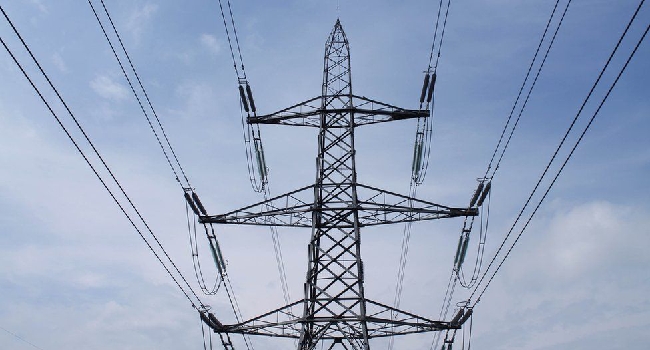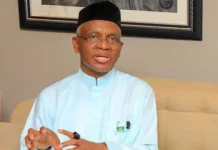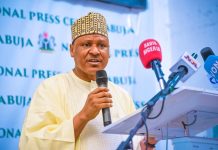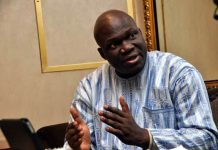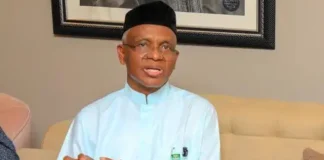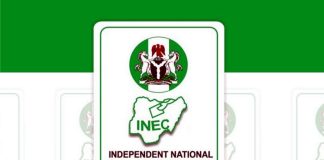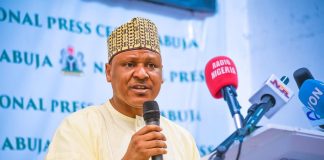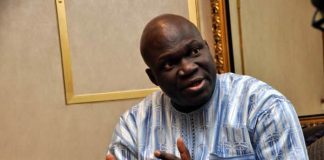🌿 Ruzu Non-Alcoholic Herbal Bitters
Ruzu Non-Alcoholic Herbal Bitters is a natural health supplement specially formulated to:
- ✅ Promote general wellness
- ✅ Detoxify the body
- ✅ Support the treatment of various ailments
Made from a powerful blend of 100% organic and medicinal herbs, Ruzu is completely alcohol-free, making it ideal for:
- 👪 All age groups
- 🌱 Health-conscious individuals
- 🌿 Anyone seeking non-alcoholic herbal remedies
Whether you're looking to boost your vitality, cleanse your system, or support healing the natural way, Ruzu Bitters offers a trusted herbal solution.
Data from the Nigerian Electricity Regulatory Commission (NERC) has revealed a rise in monthly revenue for electricity distribution companies (Discos) despite ongoing complaints of low power generation and supply.
The report indicates a N5 billion increase in revenue, rising from N95 billion in January 2024 to N100 billion in March 2024. This comes against a backdrop of public frustration with frequent power outages attributed to gas shortages.
Data from the NERC showed Discos received 2,577 gigawatt-hours of power and billed 2,072GWh of the energy received, recording 80 per cent billing efficiency in January.
It was stated that N130.9bn was the total billing, while the total revenue collected stood at N95bn, representing 72 per cent billing efficiency. The allowed average tariff rate in the month was N59.89k per kilowatt-hour, and the actual average collection was N36.97k/KWh.
It was noted that the total energy received by the Discos in February dropped to 2,149GWh, out of which 1,759GWh was billed by the Discos, adding that N97bn revenue was collected from N113bn billings.
Read Also: Nigerian govt steps in to stop deportation of Nigerian students in UK
The 1,975GWh energy was billed in March from the 2,468GWh received, while N100bn was generated from N126.5bn billings.
The rise in revenue is traceable to an increase in tariff, as the NERC said the allowed average tariff for March was N62.73k/KWh while the actual average collection was N40.69k/KWh.
While the N5 billion increase seems positive, a closer look raises questions. NERC data also shows a decrease in the amount of power delivered. The Discos received 2,577 gigawatt-hours (GWh) in January but only billed customers for 2,072 GWh, reflecting an 80% billing efficiency.
This suggests that even with less power available, Discos are collecting a higher percentage of billed amounts.
Possible Explanations:
• Improved Billing Efficiency: The rise in revenue could indicate that Discos are becoming more efficient in collecting payments. This could be due to stricter collection practices or a decrease in non-paying customers.
• Tariff Increase: It’s important to investigate if there have been any recent tariff adjustments that could explain the revenue increase without a corresponding rise in power delivered.
• Focus on High-Paying Customers: Discos might be prioritizing billing and collection efforts towards customers with higher electricity consumption rates. This could leave low-income earners disproportionately affected by the outages.
NERC and relevant authorities need to conduct a thorough investigation into the reasons behind the rising revenue despite power shortages. This will help determine if Discos are genuinely improving efficiency or if there are underlying issues requiring corrective measures.
Transparency is crucial. Discos should be held accountable for ensuring fair billing practices and prioritizing equitable distribution of available power, especially for residential consumers.
If you like what we do, and are ready to uphold solutions journalism, kindly donate to the Ripples Nigeria cause.

